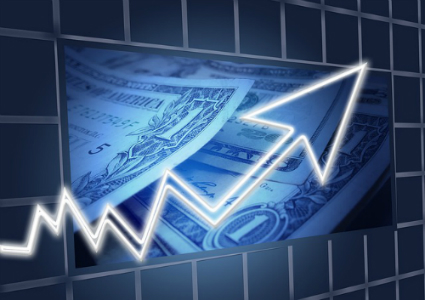
Stocks can appreciate for two good reasons. The first reason is that the company is doing well; as it becomes more profitable over time, its share price should appreciate in the long run.
The second reason is that a stock is undervalued. Investors must identify undervalued stocks using their knowledge and experience.
However, keep in mind that in both cases, you can’t control when the stock will go up. Moreover, the extent of a stock’s appreciation or drop can be skewed by the emotions of greed or fear in the short run.

A company that’s doing well
Interest rate hikes benefit the Canadian banks, but the group has generally done well in the long run, no matter what the interest rate is.
For example, in the past 10 years, Toronto-Dominion Bank (TSX:TD)(NYSE:TD) delivered earnings-per-share growth of roughly 6.8% per year on average, while increasing its dividend per share at a rate of about 8.4%. The earnings growth led to an annualized rate of return of about 10.6%. So, an investment in the bank 10 years ago would have doubled its value in fewer than seven years.
Seeing that Toronto-Dominion Bank trades at a fair valuation today, and the analyst consensus expects it will grow its earnings per share by at least 8.5% per year for the next three to five years, buyers today can expect an annualized return of roughly 11% in that period, assuming the stock continues to trade at a fair multiple.
However, if the economy turns south, the bank’s profitability may not grow as fast or it may even drop. That will drag down the share price of the bank.
An undervalued stock
Enbridge Inc. (TSX:ENB)(NYSE:ENB) looks undervalued at about $42.60 per share. It currently offers a yield of 6.3%, which last occurred in 2000.
Some investors don’t like Enbridge’s debt levels, but the energy infrastructure leader has proven to be a cash cow. Otherwise, it wouldn’t have increased its dividend for more than 20 consecutive years, and it wouldn’t have had a five-year dividend-growth rate of 16.4%. Enbridge should be able to deleverage to its desired level over time.
The consensus from Thomson Reuters has a 12-month target of $56.70 per share on the stock, which represents 33% upside potential or roughly 38% total return potential in the near term.
Since Enbridge’s Q1 dividend record date was February 15, buyers today won’t get the Q1 dividend. So, interested investors might as well see if the stock will dip further in the next three months or so before buying.
Investor takeaway
By buying companies that grow their profitability over time at undervalued prices, investors can put the odds in their favour in terms of future price appreciation, but when it’ll happen is anyone’s guess.







